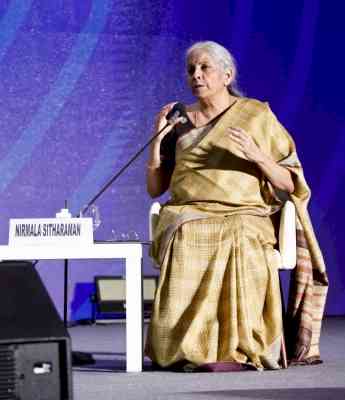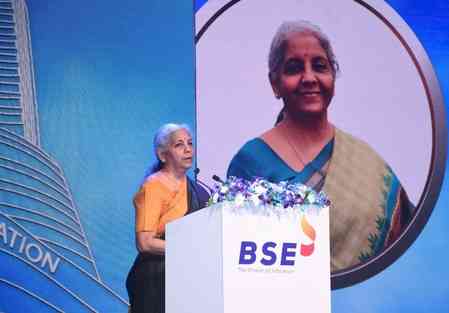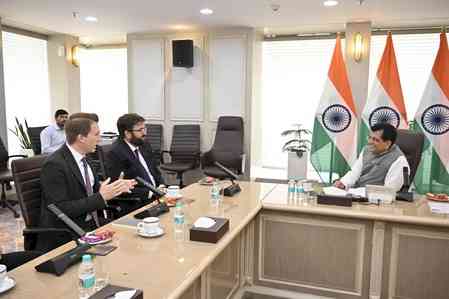Sitharaman seeks greater investment from Japan
Finance Minister Nirmala Sitharaman on Thursday exhorted Japanese investors to invest in India, while highlighting the country's digital public infrastructure revolution and its impact in the areas of health, education, financial inclusion and agriculture.

New Delhi, May 11 (IANS) Finance Minister Nirmala Sitharaman on Thursday exhorted Japanese investors to invest in India, while highlighting the country's digital public infrastructure revolution and its impact in the areas of health, education, financial inclusion and agriculture.
She said that enhancement in India's digital infrastructure has helped in reducing pilferage significantly and inducing transparency and accountability.
Sitharaman further apprised investors and business leaders of India's specific focus on Artificial Intelligence with proposed Centres of Excellence which will benefit not just the present but the future generations as well.
She said this during an interaction with investors and business leaders during an event on "Rising Investment Opportunities: Destination India", organised in collaboration with the Japan Chamber of Commerce & Industry (JCCI) and the Indian embassy in Tokyo.
Earlier, the Finance Minister had arrived in Japan on a two-day official visit.
Sitharaman informed the gathering that the Indian government is focussing on skilling people in the fast-developing area of Artificial Intelligence so that the young population can use it towards innovative solutions for all.
She shared the progress made by India in the aftermath of the coronavirus pandemic and elucidated the various steps and systemic reforms undertaken by the government during and before the pandemic that laid the foundation for India's strong and sustained recovery.
Referring to India's commitment to greening of economy and the goals under Nationally Determined Contributions NDCs, especially in renewable energy, Sitharaman said that India already achieved, with its own funds, 175 GW of solar energy and now aims to achieve 300 GW by 2030.


 IANS
IANS 







